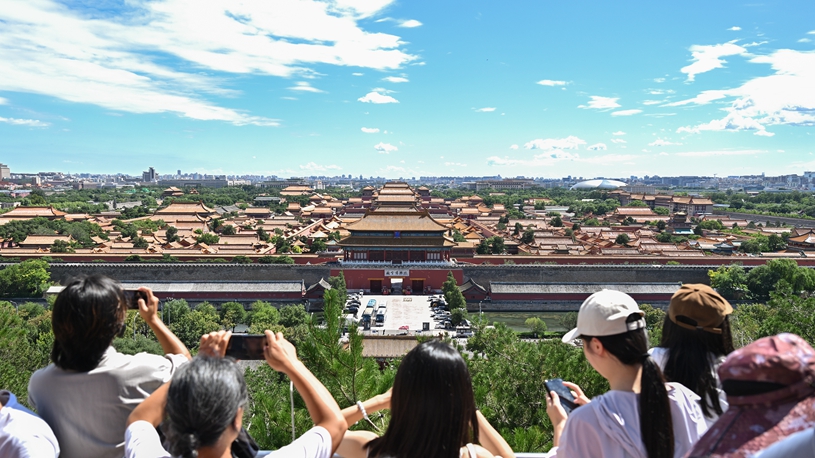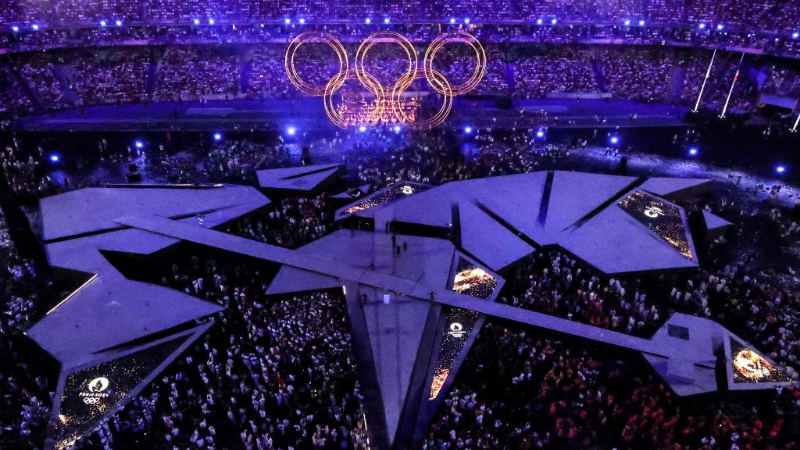Chinese modernization is the modernization through peaceful development, said Xia Lu, a research fellow of Renmin University of China. It also embodies the idea of harmonious coexistence between man and nature, which adds to the diverse philosophies of global governance.
BEIJING, Aug. 12 (Xinhua) -- As nations around the world navigate the complexities of modernization, China has forged its path -- Chinese modernization.
It is the modernization of a huge population, of common prosperity for all, of material and cultural-ethical advancement, of harmony between humanity and nature, and of peaceful development.
The approach prompts an important question: What is the global significance of Chinese modernization? What contributions can it make to human society?
Chinese modernization provides a blueprint for developing countries that seek prosperity on their own terms and could contribute to a more equitable global framework, Xia Lu, a research fellow at the National Academy of Development and Strategy, Renmin University of China, told Xinhua.
INSPIRING GLOBAL SOUTH
"Development is the top priority for the Global South," said Xia, noting Chinese modernization is "referential for the extensive regions of the Global South, especially countries with large populations."
China, the world's largest developing country, has 1.4 billion people, nearly one-fifth of the global population. Despite its vast size, China has managed to eradicate extreme poverty by the end of 2020, an accomplishment that United Nations Secretary-General Antonio Guterres hailed as "the biggest contribution to the dramatic reduction of poverty."
From 2012 to 2023, China's GDP surged from 7.5 trillion U.S. dollars to 17.6 trillion dollars, with its share of global GDP increasing from 12.3 percent to about 18 percent.
Xia, who frequently interacts with African and Southeast Asian scholars, noted that countries from the Global South are well aware of their common challenges, including poverty, wealth disparity, underdeveloped infrastructure, and inadequate medical and educational services.
"They are expecting that China can show them something new, not merely copying others, but helping them find their own paths forward," Xia explained.
NEW PATH TO MODERNIZATION
Since the inception of modernization in Western capitalist countries, there has been a prevailing belief that modernization must adhere to the Western capitalist model. This perspective often disregards alternative approaches to modernization.
Keith Bennett, vice chair of Britain's 48 Group Club, has criticized the foundations of Western modernization, noting the modernization of some Western countries "was based on the exploitation, oppression, and colonization of almost the entire world."
In contrast, "Chinese modernization is quite distinct," said Xia. "It focuses on tailoring development drivers to fit national conditions."
Xia highlighted China's innovative approach to development with its newly-proposed concept of new quality productive forces. "Instead of exploiting others, China has focused on internal innovation as its main driving force to achieve modernization," he said.
"Some Western countries tend to impose their standards on others," Xia observed, adding, "If you don't meet the standard, then you fail."
"This, in turn, stifles the potential of different nations," he said.
IMPROVING GLOBAL GOVERNANCE
The current world is undergoing profound changes unseen in a century. "It is no longer a world that can be dominated by one single country or a small group of countries," Xia said.
"Every nation has the right to independently decide its future in its own hands, not in the hands of others," he added.
Chinese modernization is the modernization through peaceful development, Xia said. It also embodies the idea of harmonious coexistence between man and nature, which adds to the diverse philosophies of global governance.
China ranks first globally in the area of planted forests and forest coverage growth, contributing a quarter of the world's new forest area in the past decade.
From 2012 to 2021, China's carbon dioxide emissions per unit of GDP declined by 34.4 percent, and energy consumption per unit of GDP decreased by 26.4 percent, equivalent to saving 1.4 billion tons of standard coal.
For the world's common prosperity, China has proposed the Belt and Road Initiative, as well as Global Security Initiative, Global Civilization Initiative and Global Development Initiative. These efforts reflect China's commitment to fostering international cooperation and addressing global challenges through innovative thinking.
"All these endeavors, including the practice of Chinese modernization, send out one message: the world needs new ways and new thinking to solve common problems," Xia said.■










